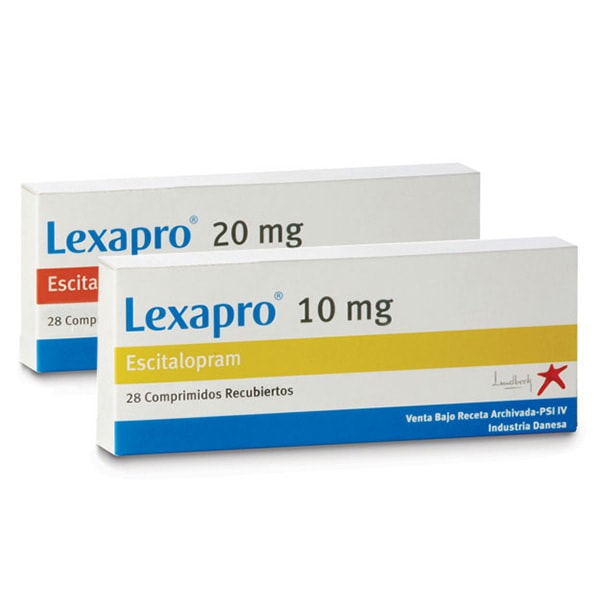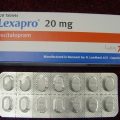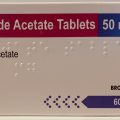What is escitalopram?
Escitalopram oral tablet is a prescription drug that’s available as the brand-name drug Lexapro. It’s also available as a generic drug. Generic drugs usually cost less. In some cases, they may not be available in every strength or form as the brand-name version. Talk to your doctor to see if the generic version will work for you. Escitalopram is also available as an oral solution.
Why it’s used
This drug is used to treat depression and generalized anxiety disorder. It may be used as part of a combination therapy. This means you may need to take it with other medications. Globally an estimated 284 million people experienced an anxiety disorder, making it the most prevalent mental health or neurodevelopmental disorder. Around 63 percent (179 million) were female, relative to 105 million males. In all countries, women are more likely to experience anxiety disorders than men.
Who can and cannot take escitalopram?
Escitalopram can be taken by adults over the age of 18.
Check with your doctor before starting to take escitalopram if you:
- have had an allergic reaction to escitalopram or any other medicines in the past
- have epilepsy or are having electroconvulsive treatment – escitalopram may increase your risk of having a seizure
- have a heart problem – escitalopram can speed up or change your heartbeat
- have a low heart rate, plus you have had severe diarrhea and vomiting for a long time, or take tablets that make you pee more (diuretics)
- have ever taken any other medicines for depression – some rarely used antidepressants can interact with escitalopram to cause very high blood pressure even when they have been stopped for a few weeks
- are trying to become pregnant, already pregnant, or breastfeeding
- have an eye problem called glaucoma – escitalopram can increase the pressure in your eye
If you have diabetes, escitalopram can make it more difficult to keep your blood sugar stable.
Monitor your blood sugar more often for the first few weeks of treatment with escitalopram and adjust your diabetes treatment if necessary.
How it works
This drug belongs to the class of drugs called selective serotonin reuptake inhibitors (SSRIs). A class of drugs is a group of medications that work in a similar way. These drugs are often used to treat similar conditions. Escitalopram increases the amount of a natural substance in your brain called serotonin. This substance helps maintain mental balance.
What Happens When You Stop Taking Escitalopram (Lexapro)?
According to the National Alliance on Mental Illness (NAMI), stopping escitalopram abruptly may result in one or more of the following withdrawal symptoms: irritability, nausea, feeling dizzy, vomiting, nightmares, headache, and/or paresthesias (prickling, tingling sensation on the skin). Patients should not stop taking escitalopram, even when they feel better. Usually, your health care provider will assess how long you will need to take the medicine. Missing doses of escitalopram may increase your risk for relapse in your symptoms.
Side effects
Like all medicines, escitalopram can cause side effects in some people, but many people have no side effects or only minor ones.
Some of the common side effects of escitalopram will gradually improve as your body gets used to it.
Common side effects
Common side effects may happen in more than 1 in 10 people.
Keep taking the medicine, but talk to a doctor or pharmacist if these side effects bother you or don’t go away:
- a dry mouth
- sweating a lot
- being unable to sleep
- feeling sleepy
- feeling tired or weak
Serious side effects
Serious side effects are rare and happen in less than 1 in 1,000 people.
Go to A&E immediately if you get:
- painful erections that last longer than 4 hours – this may happen even when you’re not having sex
- severe dizziness or passing out
- any bleeding that’s very bad or you can’t stop, such as cuts or nosebleeds that doesn’t stop within 10 minutes
Call a doctor straight away if you get:
- constant headaches, long-lasting confusion or weakness, or frequent muscle cramps – these can all be signs of low sodium levels in your blood (in severe cases, low sodium can lead to seizures)
- thoughts about harming yourself or ending your life
- a high temperature (38C and above) with agitation, confusion, trembling, and twitching
- vomiting blood, coughing up vomit, blood in your pee, black or red poo – these can be signs of bleeding from the gut
- bleeding from the gums, or bruises that appear without a reason or get bigger
Book an appointment with your doctor if you experience:
- weight gain or loss without trying
- changes in your periods, such as heavy bleeding, spotting, or bleeding between periods
Serious allergic reaction
In rare cases, it’s possible to have a serious allergic reaction (anaphylaxis) to escitalopram.
ALSO READ: How Quickly Does Propranolol Work For Anxiety






